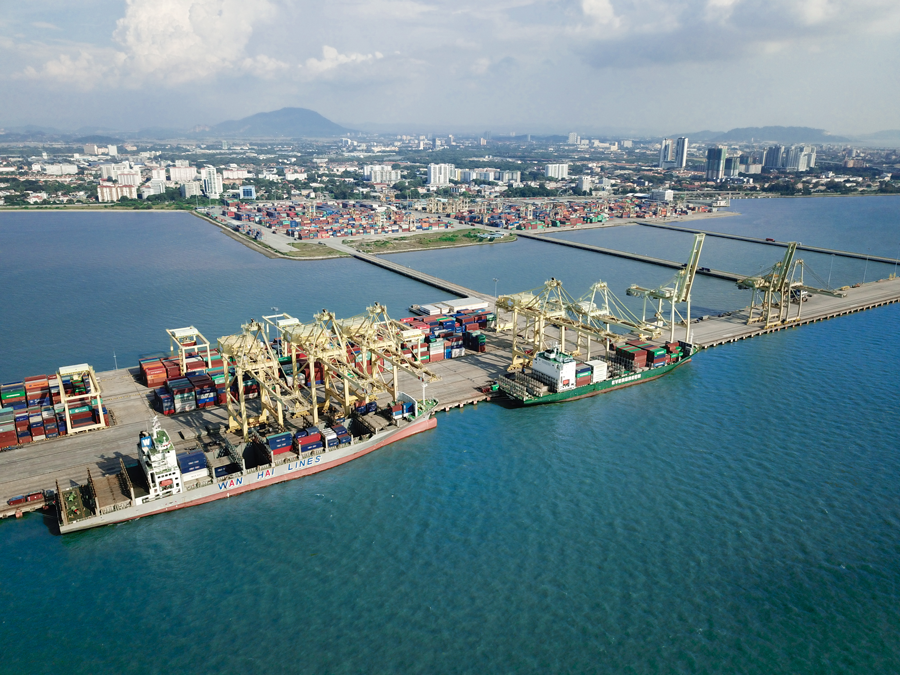
Red Sea crisis to slow Penang Port’s cargo growth in 2024 after expanding 11pct in 2023
PENANG : Growth of container throughput at Penang Port may be slower than expected this year amid declining global shipping due to the Red Sea crisis.
Penang Port Sdn Bhd, a member of MMC Group, recorded 1.44 million twenty-foot equivalent units (TEUs) in 2023, rising 11 per cent from 1.3 million TEUs the year before.
However, Penang Port CEO Datuk Sasedharan Vasudevan said the growth this year will likely slow, noting that TEUs at the port should reach 1.5 million, up by only 4.0 per cent from last year.
He said the earlier projection of 1.55 million TEUs is slashed after the crisis intensified in April, which disrupted global shipping route as ships now need to reroute vessels around the African continent.
“We lost 50,000 to 60,000 containers because of this. We don’t think it’s going to go on forever because it’s not sustainable.
“Once everything restored, or the northern region finds excess capacity comes into the market, more ships and more containers, we believe by next year it will restore,” he added.
On Penang Port’s plan to increase its TEUs, Sasedharan said the company is shifting its focus towards markets that are unaffected by Red Sea crisis such as Bay of Bengal and North Sumatra, where incentives has been introduced to encourage more transshipment.
According to him, the Bay of Bengal transshipment has grown 100 per cent since 2021 and Penang Port is currently leveraging on this potential.
“If you put together all these four nations, (Bangladesh, Indonesia, India and Myanmar) there are about 8.0 million containers sitting in the Bay of Bengal.
“Our initial target is about 100,000 containers and I think this year we will cross 30,000 to 40,000 containers,” he said.
On tariff, Sasedharan said the port has requested the government to increase it.
“Our tariffs are highly regulated and revised every five to seven years. So by the time our cost base changed, electricity has gone up while water has rose twice this year. Our margins are affected,” he added.

